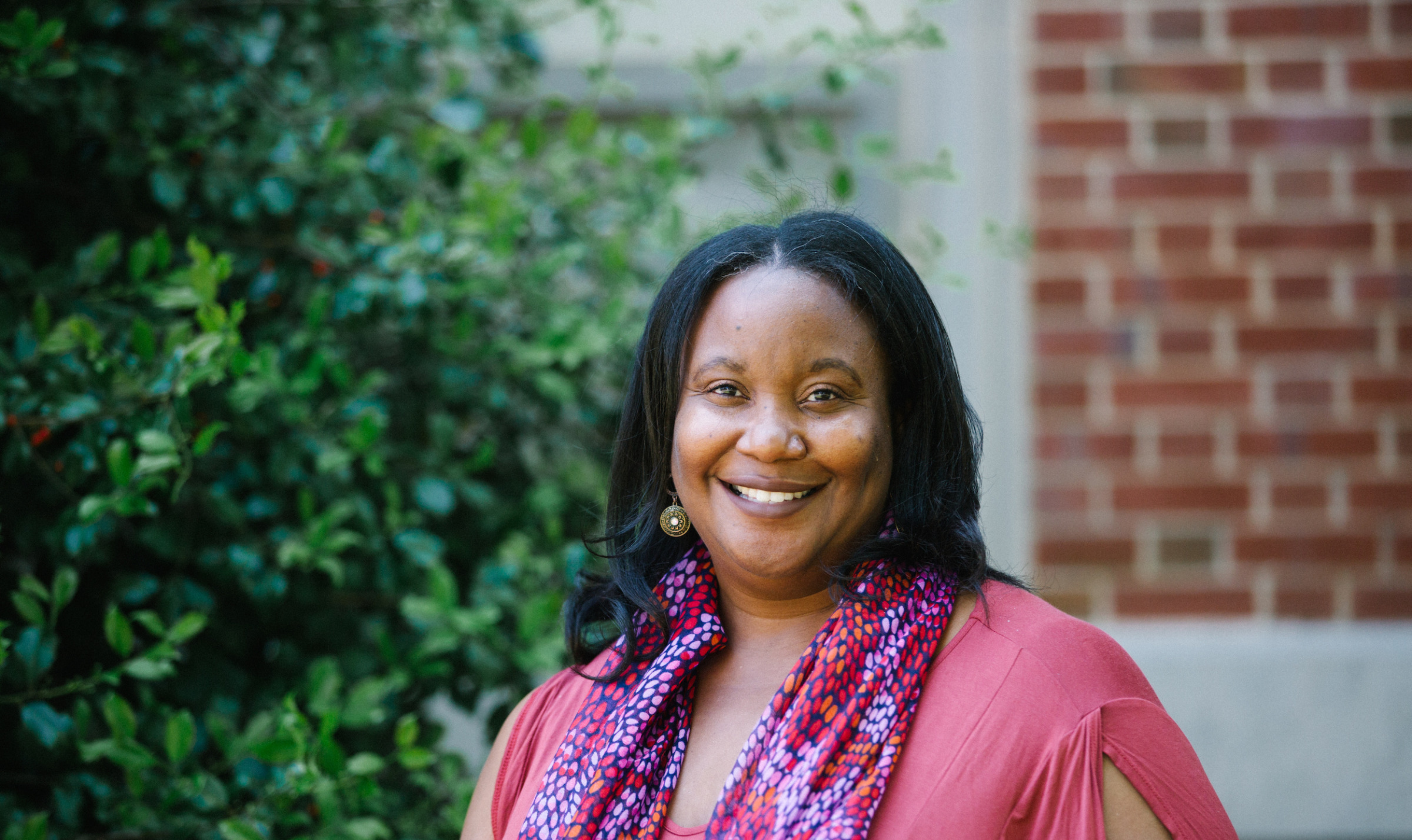In December 2023, UNC School of Education faculty member, Dana Griffin, Ph.D., was part of a team awarded $4 million in funding from the U.S. Department of Education to assess the efficacy of the Be CALM (Cool, Attentive, Logical, and Mature) mindfulness-based social-emotional learning (SEL) program.
The initiative — which is led by principal investigator Desiree W. Murray, Ph.D., a Senior Research Scientist at the UNC Center for Health Promotion and Disease Prevention — will follow a multi-tiered approach, involving teachers delivering a student curriculum and school counselors providing additional support to students in need. The program will be implemented in early college high schools in predominantly rural areas across North Carolina, offering dual enrollment in college classes to traditionally underrepresented students in post-secondary education.
Adolescent depression and anxiety were on the rise even before the pandemic, and have continued to steadily rise (Marraccini et al., 2022), leading to diminished opportunities for developing social-emotional skills and contributing to a public health crisis in adolescent mental health. According to the Youth Risk Behavior Surveillance System (YRBSS), rates of depression and anxiety have increased dramatically, with 20% seriously considering suicide (Center for Disease Control, 2019). Additionally, stress-related issues are more prevalent among female and LBGTQ+ students, placing a strain on schools experiencing limitations to meet increased mental health needs.
According to Griffin, whose research emphasizes building strong partnerships with and between historically minoritized families, schools, and communities, it is important to teach and promote self-regulation and mindfulness strategies to help support our most vulnerable students.
“SEL is vital in the aftermath of the COVID-19 shutdown,” Griffin said. “Our youth are struggling more than ever and we are still unpacking the impact of the shutdown on student psyches. We had a pivotal traumatic time in history that all of us experienced, but we have not collectively come together to determine how to best address the trauma. In the meantime, SEL programs, like Be Calm, are showing great strides in increasing student capacity for addressing their own emotional well-being.”
Students in accelerated learning programs such as Early College High Schools (ECHSs) experience additional stressors that affect their emotional well-being and academic success. While these programs cater to historically underrepresented students, including those of color and from first-generation or low-income backgrounds, there is a critical need for social-emotional support tailored to the needs of students from minoritized backgrounds.
Despite the established structure of social-emotional learning (SEL) programs as school-based interventions, 88% of high schools face challenges in addressing the mental health needs of their students. This is evident for those for whom preventive strategies alone prove insufficient. The limitations often stem from SEL programs neglecting varying aspects of training and supporting educators, as well as lacking a framework for seamlessly integrating prevention and intervention strategies.
To fill these gaps, the team of researchers behind the grant has created a mindfulness-based SEL program. This program assists teachers in supporting student SEL while involving school counselors as leaders in SEL implementation, and promoting comprehensive multi-tier SEL support throughout the entire school.
“I am truly excited to be a part of this team,” Griffin said. “When Murray invited me to join them on this project, I didn’t hesitate because of the emphasis on the important role of school counselors in this project. Additionally, preliminary data from the BeCalm program proves the program to be effective, especially with our Black and brown populations.”
As part of the 5-year project, the multi-tiered Be CALM program will first be implemented as a pilot in four schools. It will then be evaluated through a randomized wait-list controlled trial involving 20 early college high schools. Griffin will take the lead on providing professional development for school counselors and promoting equity for underserved students and schools as part of the program development.
In addition to Murray and Griffin, the team also includes Julie Edmunds, Ph.D., director of the Early College Research Center at UNC Greensboro, and Julie Marks, Ph.D., of the Education Policy Initiative at Carolina (EPIC). The program will also employ staff with lived experience in rural schools and similar cultural backgrounds to the target student population, who will lead implementation.
This collaborative effort between researchers, educators, and rural schools aims to address the social-emotional needs and enhance college readiness for more than 4,500 high school students.
“Again, I am happy to be a part of this research team,” Griffin said. “The work is so important and has huge implications for the work that we need to do in schools. The nature of my work keeps me in continued communication with school personnel and I hear how difficult it is now. Not only are our students experiencing stress, frustration, and emotional dysregulation, but so are our educators. This program not only can help our students, but also provide strategies to what I consider some of the most important people at the table – our educators. Although not a part of our grant, I would love to see the Be Calm program also have a positive impact on teacher and school counselor mindset as well. We can’t keep pouring from empty cups.”
—
This story has been adapted from a feature originally published by the UNC Center for Health Promotion and Disease Prevention.
This news release’s information was created with support from the U.S. Department of Education’s Education Innovation and Research (EIR) Program grant. The project is funded with 90% ($4.0 million) from the federal government and 10% in matching funds from non-governmental school partners (totaling $4.4 million). The content in this release does not necessarily reflect the U.S. Department of Education’s policy, and federal government endorsement should not be assumed.
